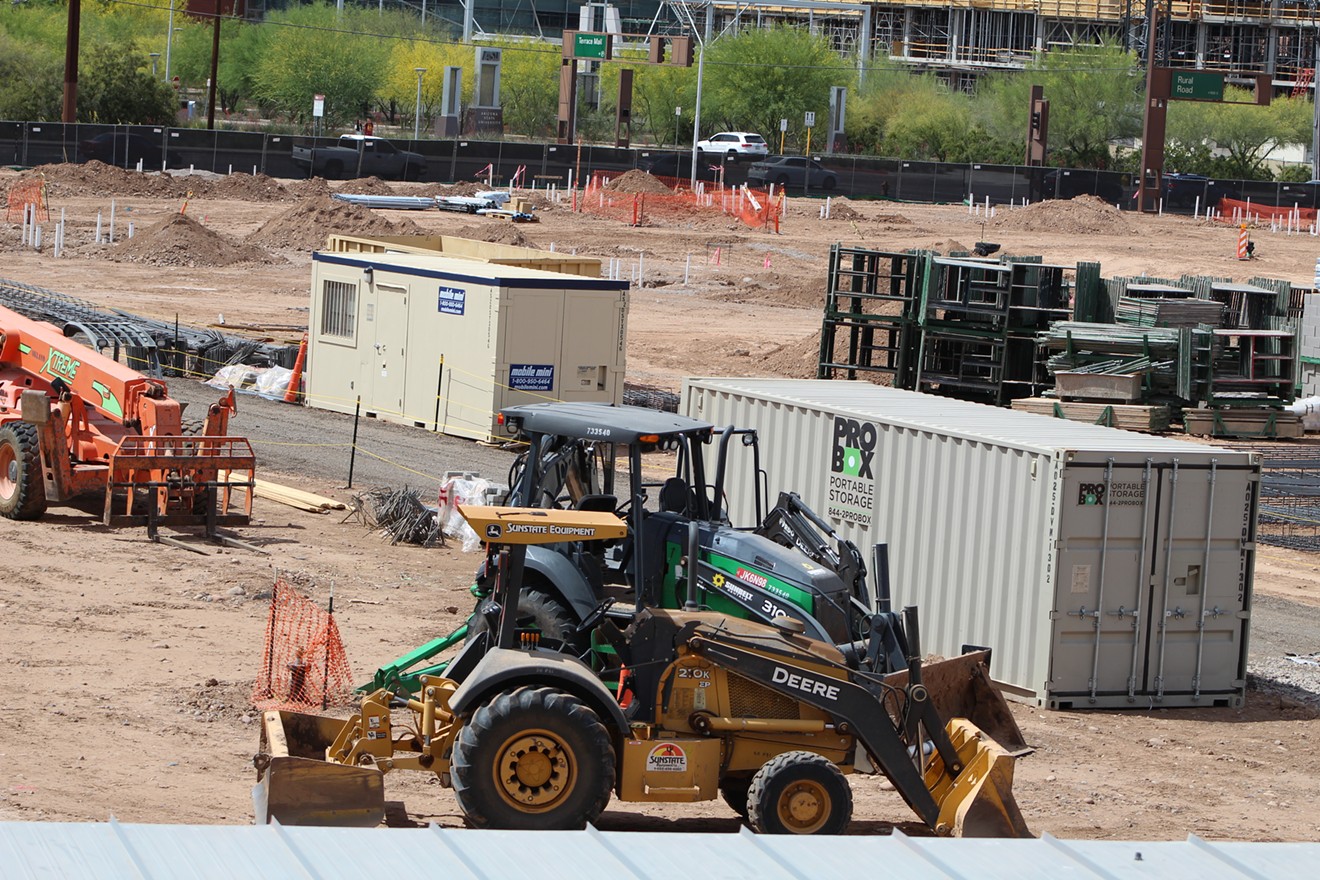Sororities in Adelphi Commons, the on-campus housing built for them in the early 2000s, don't have to move if members don't want to, officials said.
"We are reviewing housing applications and don’t have information on who will be residing in the new community," ASU spokeswoman Meenah Rincon told the Phoenix New Times in response to questions about the project.
"The Greek Village is an expansion of the current student housing accommodations ASU provides. The university has no plans to replace the Adelphi Commons, and students have the option to continue to reside at Adelphi Commons."
Construction began earlier this year at Terrace and Rural roads, the site of the former Cholla Apartments student housing. The complex is slated to feature 27 "townhouses" and 950 beds for fraternity and sorority chapters, plus a posh conference center.

An architectural rendering of a common area at the Greek Leadership Village, which is under construction at Terrace and Rural roads.
But the Greek Leadership Village has been fighting criticism from some members of ASU's 5,500-strong Greek community.
According to a Change.org petition started in January by ASU student Austin Bloom, many people don't like the village idea. Critics says it will be too expensive, will require rigid lease agreements, and will lack amenities that nearby apartments have, like gyms or swimming pools. They also resent the concept of a controlled environment in which they don't own the buildings or set the rules.
Bloom's petition gathered close to 200 online signatures. Alumni and current students used the site to vent their frustrations with the plan, which has been in the works for years.
"I am a Lifetime Gold Alumni of ASU and have followed this issue over the past years as best I can being out of state," wrote Douglas Manzler of Cincinnati. "It appears to me ASU has forced this down the throats of all involved and I am personally disgusted by the university and how this has been handled from its beginning many years ago."
After he launched it, Bloom claims, ASU began investigating him for a minor discrepancy on his university application.
Following publication of the article, New Times received an anonymous e-mail from someone who claims that ASU has been "threatening" students and organizations that oppose the Greek Leadership Village.
The e-mail writer said that the people behind a second online petition critical of the project determined that "there is not a single fraternity on campus that would live in the village once it is built."
The writer claims that ASU officials are "strong arming" fraternity chapters into signing letters of intent to move into the Village, threatening various disciplinary action. The university targeted an unidentified fraternity chapter president with an unwarranted investigation over an "unregistered event" at his off-campus residence that had occurred months earlier, the writer alleged.
New Times reached out to several of five Greek-life councils, plus left messages with ASU's Fraternity and Sorority Life office, but no one called back. ASU officials didn't respond on Tuesday to accusations about retaliation.
American Campus Communities is funding construction of the $72 million complex by tapping its American Campus Equity program, according to Rincon.
The deal struck with ASU doesn't affect taxpayers. Instead, ACC will fund, build, operate, and maintain the housing component. The company signed a 65-year lease with ASU, and agreed to make annual lease payments to ASU of more than $500,000 for use of the land, according to Arizona Board of Regents documents.
ASU sought and received approval last week from the regents to revise its budget to include $14 million for the Village's conference center. The Village and conference center are expected to take in new residents by the end of next year. The regents are scheduled for an approval vote on the conference center in June.
Resident leases will provide the revenue. ASU reserves the option to master lease blocks of beds to accommodate different groups.
ACC has built and maintains several large-scale residential properties on and just off the campuses of ASU and elsewhere in Arizona, including Tempe's Vista del Sol and 922 Place apartments. The company is also building the $120 million, 1,600-bed Engineering Residential Community for ASU's Ira A. Fulton College of Engineering.













